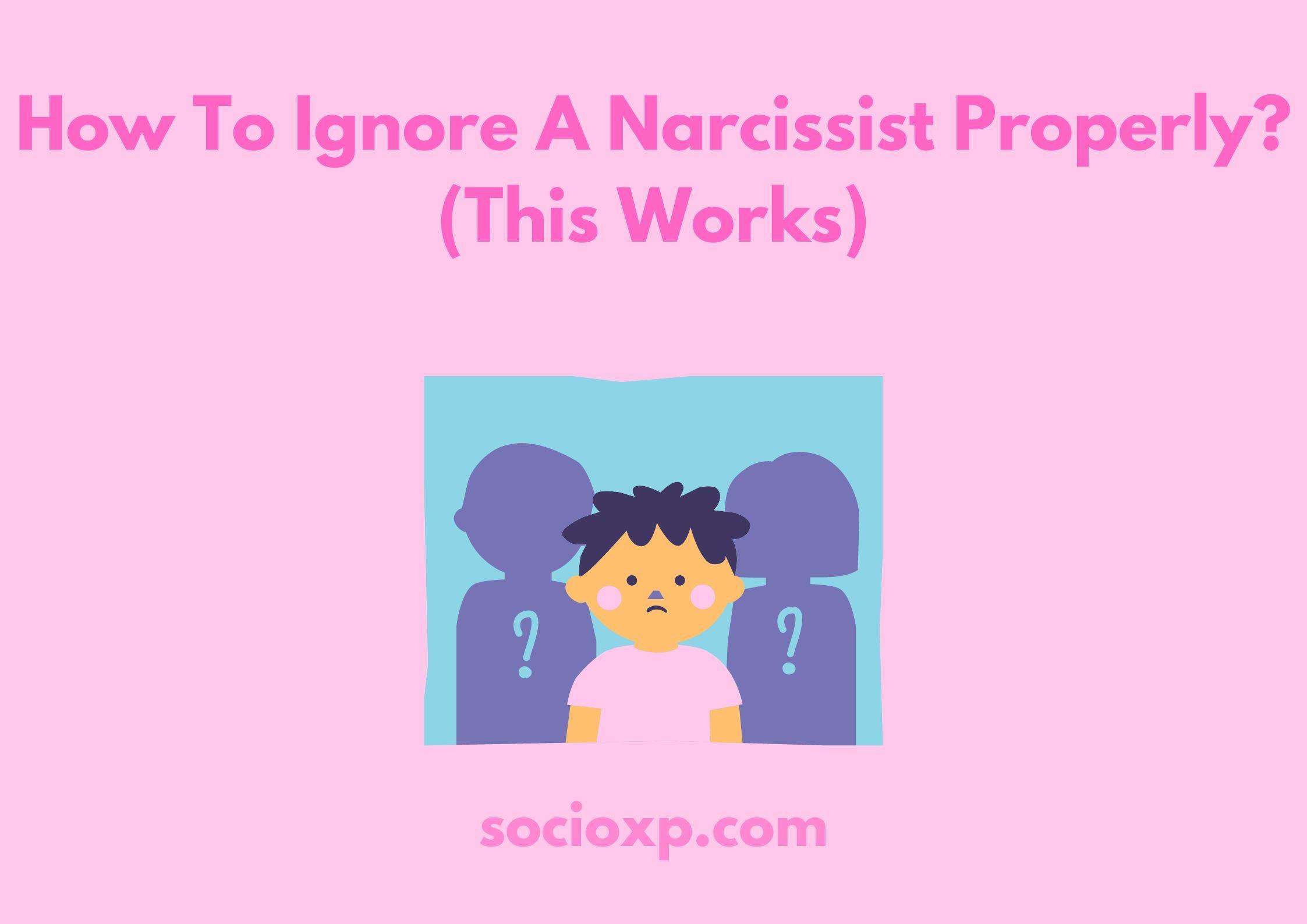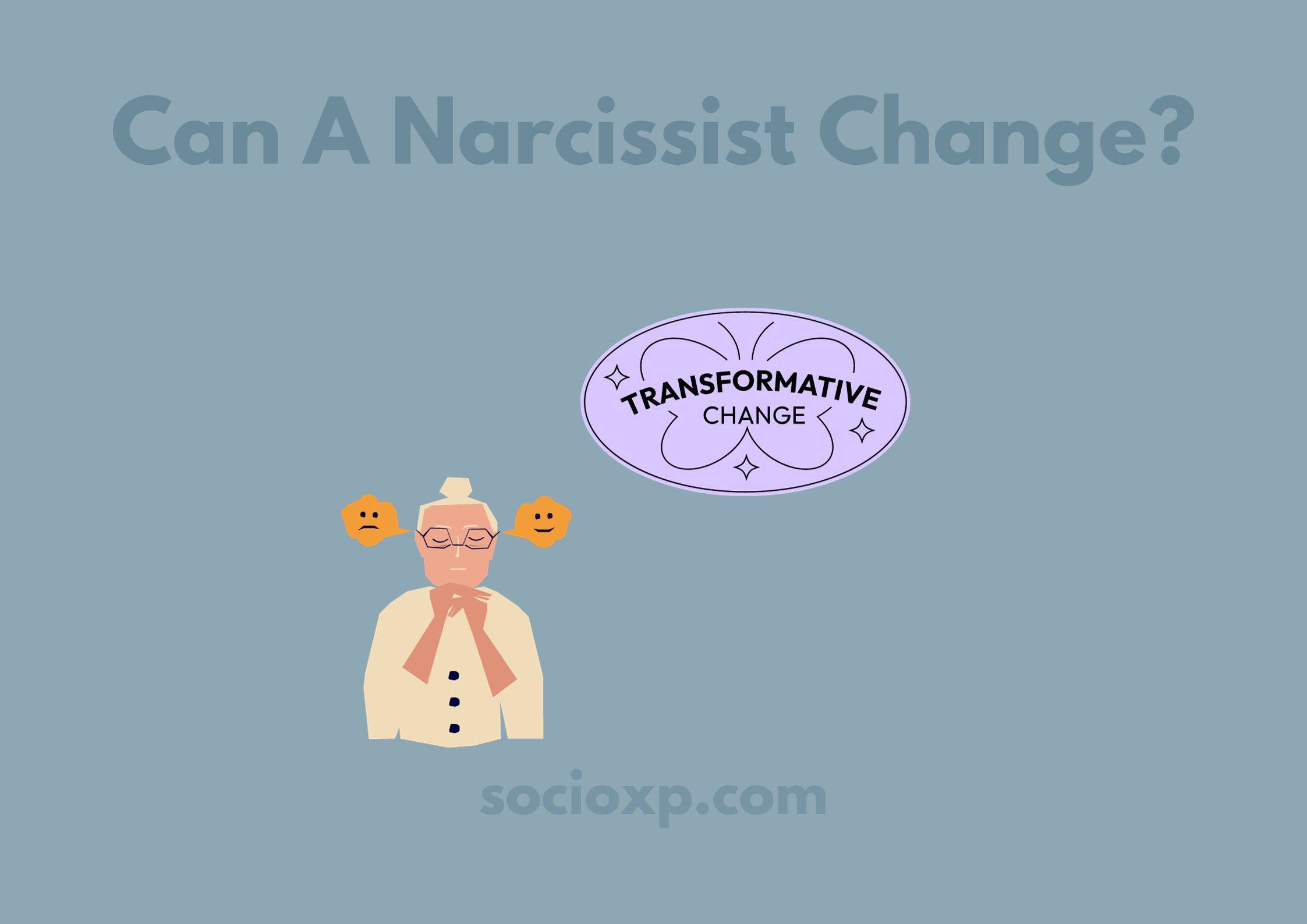What Does It Mean To Be A Narcissistic Listener? (In-Depth Explanation)
What does it mean to be a Narcissistic Listener? Does the term narcissistic listener seem new or inquisitive? Give your inquisitiveness a rest as this article will be acknowledging the readers about narcissistic listeners with a detailed explanation.

What is Narcissistic Listening?
Narcissistic listening is a term used to describe a listening behavior in which the listener is more focused on themselves and their own interests rather than the person speaking. Narcissistic listeners may show a lack of empathy and may interrupt or talk over the speaker. They may also be preoccupied with their own thoughts, experiences, or feelings and may struggle to truly listen and understand what the speaker is saying. Overall, narcissistic listening can be damaging to relationships and communication.
Narcissistic Listening is a type of communication behavior where the listener focuses entirely on their own needs, desires, and interests, rather than making an effort or an attempt to understand or empathize with the person who is speaking. The narcissistic listener often interrupts the speaker, talks more than they listen, and redirects the conversation to themselves. Narcissistic listening also includes manipulating or controlling other people’s conversations, rather than really engaging with what the speaker is saying. This type of listening can be hurtful, untrustworthy, and frustrating for the speaker, as they may feel that they are not being heard or their worth is lowered.
What is a Narcissistic Listener?
It is like a loop where the narcissistic listener, always tends to divert the topics to themselves, and every topic includes them. They cannot lend their ears to other people purely to listen, they constantly interrupt and disturb the speaker and also make their problem or whatever they are discussing look trivial or common.
If the other person is discussing some of their problems or sharing something, they would state it repeatedly that they have also faced the same and it is not a big deal. They make other people’s problems seem smaller and trivial and prove that they have faced much more than them. Narcissistic listeners are experts at making the conversation one-sided and always dismissing other people’s opinions. Taking to them feels like they are just prioritizing their own agenda and needs over genuine communication and connection with others.
Narcissistic listeners are someone who only hears what they want to hear and their primary focus is just on themselves. They may appear to be paying attention to what the speaker has to say but in reality, they are not. In reality, they are just waiting for their turn to discuss, and make the speaker feel unimportant and also trifling their topic. They lack empathy for others’ experiences and feelings and are more interested in discussing their own accomplishments, experiences, and opinions. They are just interested in providing opinions and making themselves look more balanced or better than others.

What does it mean to be a Narcissistic Listener?
As humans, everyone craves attention, validation, and adoration from others. People love listening and sharing their own stories with each other. However, this is not the case with some individuals, whom we know as narcissistic listeners.
Narcissistic listening means that you are just interested in others when they talk about their accomplishments, achievements and also ask for opinions. Narcissistic Listeners may interrupt others when they try to share their thoughts or minimize their experiences. They may also use your stories as a way to boost their ego and make themselves feel important.
One of the key characteristics of narcissistic listeners is that they lack empathy. They are not interested in understanding the feelings or perspectives of those around them. Instead, they use such interactions with others to simply boost their own sense of self-worth. They also tend to steer conversations toward them and into their personal experiences and interests. They may completely take over the conversations and disregard other people’s opinions. A lack of empathy may make other people feel disrespected and also frustrated, which is always the case when narcissistic listeners lack empathy and try to lend their ears to others.
People who have conversations with narcissistic listeners may feel dismissed, frustrated, and trivial. This may later result in resentment and a breakdown of the relationship. Narcissistic listening behavior may be rooted in deep-seated insecurities relating to childhood trauma which makes a person crave attention, validation, and adoration no matter what the situation. Such people have a fear of being seen as insignificant or unimportant, which drives their behavior. However such behavior is unhealthy and should not be promoted or encouraged at any cost.
Being a narcissistic listener is generally considered to be a negative trait as it indicates a lack of empathy and displays self-centeredness in conversations. There are a few ways though to improve on this trait. In order to have a healthy conversation or in a healthy conversation, it is important to be an attentive listener without focusing solely on one’s own interests or opinions. Listening is essential for building rapport and developing positive relationships, so being self-absorbed in conversations can be detrimental to one’s own social and emotional well-being.

Examples of Narcissistic Listening
A few examples of Narciistsic Listening are mentioned below,
- Interrupting – The narcissistic listener interrupts the conversations to share their own experiences and opinions. They do this without acknowledging the information provided by other people.
- Lack of Empathy – The Narcissistic listener shows little empathy or concern for the feelings or experiences of other people, focusing just on their own needs and desires.
- Self-centeredness – The narcissistic listeners consistently direct the conversations back to themselves, even when it is not relevant to the topic at hand.
- Attention seeking – The narcissistic listener may dominate conversations or seek attention through their speech, appearance, and gestures, often at the cost of others.
- Dismisiveness – The Narcissistic listener is quick to dismiss or invalidate the perspectives or experiences of others, often because they believe their own opinions to be superior.
- Criticism – The Narcissistic Listener may be critical or judgemental of other people’s opinions or behavior, often in an attempt to boost their own sense of superiority or control.
- Grandiosity – The Narcissistic listener may talk in an overly confident or grandiose manner, making exaggerated or unrealistic claims about their accomplishments or abilities.
What is it like talking to a Narcissistic Listener?
There is a general description of what it feels like to talk to a narcissistic listener based on some common patterns of behavior exhibited by individuals with Narcissistic Personality Disorder.
- Talking to a Narcissistic listener can be frustrating and exhausting as they tend to dominate conversations and make everything about themselves.
- They only focus on the topics that they are interested in otherwise they are just physically present listening to you, while mentally they are somewhere else.
- They just listen to you for the sake of listening while in reality, they are not interested in what you have to say.
- They may constantly interrupt or talk over you, shifting the focus of the conversation from you to them.
- They may dismiss your opinions and feelings and often make the conversation all based on them and their experiences regarding the same.
- They may also use tactics like gaslighting, where they would completely distort the reality of the situation or manipulate the conversation to make you doubt yourself.
- They hardly have any empathy for others and may be more interested in using the conversation to boost their own ego, self-esteem and state their importance.
- They may also have a tendency to brag, exaggerate their accomplishments, or seek admiration and praise from others, diverting the topic from the speaker to their own self.
- Talking to a narcissistic listener can be a challenging task and may require setting clear boundaries and being mindful of your own emotional well-being.
- Narcissistic listeners are not the best kind of listeners when you want to share something heartfelt as they are not empathetic.

How to change your behavior if you are a Narcissistic Listener?
This may be a concern, as changing narcissistic behavior is tough, but one can always give it a start by taking baby steps and making a few changes,
- One can start by actively listening to others and showing interest in the conversations.
- One needs to learn to show empathy and indulge in other people’s experiences.
- One should also avoid interrupting others while they talk and also learn to ask open-ended questions.
- One can also practice empathy and try to understand other people’s feelings and perspectives.
- One can also seek professional help to try and address the underlying insecurities or fears that are encouraging and driving such behavioral patterns for an individual.
Conclusion
Being a narcissistic listener means that you prioritize your own interests and accomplishments over those of others. This can damage relationships and lead to negative feelings from those around you. It is important to recognize this behavior and take steps to change it, for the sake of yourself and those you interact with.
Talking to a narcissistic listener can be a challenging task and may require setting clear boundaries and being mindful of your own emotional well-being.
Being a narcissistic listener is generally considered to be a negative trait as it indicates a lack of empathy and displays self-centeredness in conversations. In order to have a healthy conversation or in a healthy conversation, it is important to be an attentive listener without focusing solely on one’s own interests or opinions. Listening is essential for building rapport and developing positive relationships, so being self-absorbed in conversations can be detrimental to one’s own social and emotional well-being.
One can always seek professional help to try and address the underlying insecurities or fears that are encouraging and driving such behavioral patterns for an individual.
- How To Make A Narcissist Discard You And Leave You Alone? - March 21, 2024
- Narcissistic Supply: 9 Signs You May Be Someone’s Narcissistic Supply - March 11, 2024
- Narcissistic Abuse And Anxiety – 11 Symptoms of Narcissistic abuse-induced anxiety - March 9, 2024


